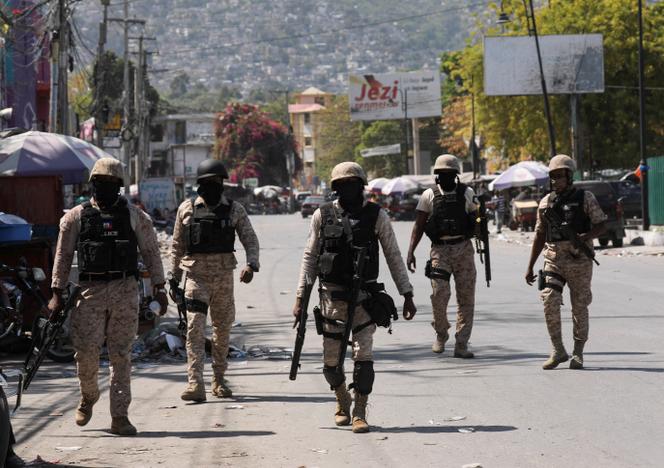


With Haiti's capital spiraling deeper into gang violence, the United States said Sunday, March 10, it has airlifted non-essential American staff from its embassy in Port-au-Prince and brought in additional personnel to boost security at the compound.
Residents of beleaguered neighborhoods were scrambling for safety on Saturday following the latest spasm of unrest, with a United Nations group warning of a "city under siege" after armed attackers targeted the presidential palace and police headquarters. Criminal groups, which already control much of Port-au-Prince as well as roads leading to the rest of the country, have unleashed havoc in recent days as they try to oust Prime Minister Ariel Henry as leader of the Western hemisphere's poorest country.
The US military said early Sunday it had "conducted an operation to augment the security of the US Embassy at Port-au-Prince, allow our Embassy mission operations to continue, and enable non-essential personnel" to depart. "This airlift of personnel into and out of the Embassy is consistent with our standard practice for Embassy security augmentation," the statement from the military's US Southern Command added.
The embassy said on X that it remains open. "Heightened gang violence in the neighborhood near US embassy compounds and near the airport led to the State Department's decision to arrange for the departure of additional embassy personnel," it added, noting that all operation passengers "work for the US government."
The unrest has seen 362,000 Haitians internally displaced – more than half of them children, the International Organization for Migration said Saturday. "Haitians are unable to lead a decent life. They are living in fear, and every day, every hour this situation carries on, the trauma gets worse," Philippe Branchat, IOM's chief in Haiti, said in a statement. "People living in the capital are locked in, they have nowhere to go," he said. "The capital is surrounded by armed groups and danger. It is a city under siege."
Police late Friday repelled gang attacks, including on the presidential palace, and several "bandits" were killed, Lionel Lazarre of the Haitian police union said. Gunshots rang out late Friday throughout Port-au-Prince and witnesses recounted clashes "between police officers and bandits" as gangs apparently tried to commandeer police stations.
Lazarre on Saturday pleaded for "means and equipment" to protect key facilities. The well-armed gangs have attacked critical infrastructure in recent days, including two prisons, allowing the majority of their 3,800 inmates to escape.
Along with some ordinary Haitians, the gangs are seeking the resignation of Prime Minister Henry, who was due to leave office in February but instead agreed to a power-sharing deal with the opposition until new elections are held. Washington has asked Henry to enact urgent political reform. He was in Kenya when the violence erupted and is now reportedly stranded in the US territory of Puerto Rico.
The UN Security Council gave its green light in October for a multinational policing mission led by Kenya, but that deployment has been stalled by Kenyan courts.
Port-au-Prince and western Haiti are under a month-long state of emergency, and a nighttime curfew was in effect until Monday, though it was unlikely overstretched police could enforce it.
Haiti's airport remained closed while the main port – a key point for food imports – reported looting since suspending services Thursday. "If we cannot access those containers, Haiti will go hungry soon," non-governmental organization Mercy Corps warned.
CARICOM, an alliance of Caribbean nations, has summoned envoys from the United States, France, Canada and the United Nations to a meeting Monday in Jamaica to discuss the violence and ways to provide assistance to Haiti.
